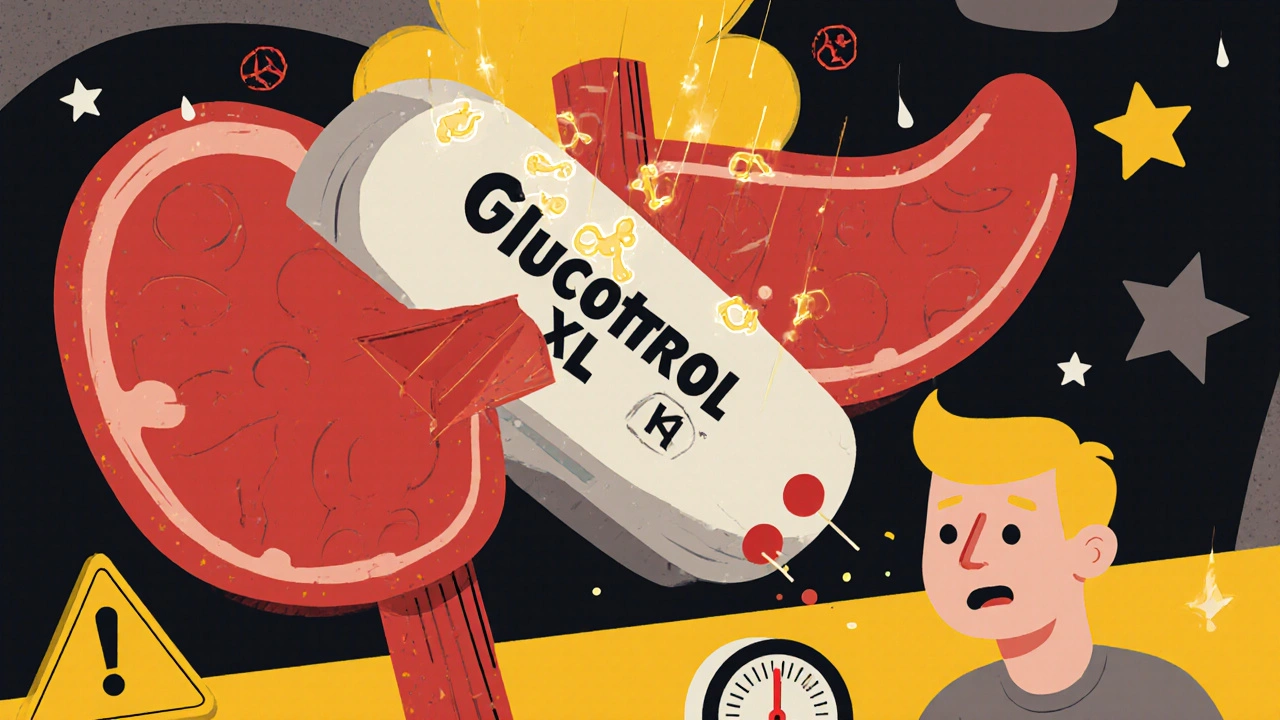Glipizide: What It Is, How It Works, and What You Need to Know
When you have glipizide, a type of oral diabetes medication used to treat type 2 diabetes by increasing insulin release from the pancreas. Also known as Glucotrol, it's one of the most prescribed sulfonylureas in the U.S. and Europe, helping millions manage their blood sugar without injections. Unlike insulin or metformin, glipizide doesn't make your body more sensitive to insulin—it tells your pancreas to produce more of it. That’s why it’s often used when diet and exercise aren’t enough, but before insulin becomes necessary.
Glipizide works fast—usually within 30 minutes—and its effects last about 6 to 12 hours. That means you typically take it 30 minutes before breakfast or your main meal. It’s not meant for type 1 diabetes or diabetic ketoacidosis. People with kidney or liver problems need lower doses or may not be able to take it at all. And because it forces your body to make more insulin, the biggest risk is low blood sugar, especially if you skip meals, drink alcohol, or exercise more than usual. That’s why tracking your glucose levels and sticking to a schedule matters more than most patients realize.
Glipizide is often paired with other diabetes drugs like metformin or pioglitazone, but it can also be used alone. It’s not a weight-loss pill—some people even gain a little weight on it. And while it’s cheap and widely available, it’s not the best choice for everyone. Older adults, for example, are more prone to dangerous drops in blood sugar, so doctors often prefer newer options. But for many, especially those with decent pancreatic function and a regular eating schedule, glipizide still works well and saves money.
What you’ll find in these articles isn’t just basic info about glipizide. You’ll see how it compares to other diabetes pills, what happens when it’s mixed with common meds like NSAIDs or antibiotics, and how it affects people with other conditions like kidney disease or heart issues. There are real-world stories about side effects, dosing mistakes, and what to do when your blood sugar won’t stay stable. You’ll also learn why some doctors avoid prescribing it anymore—and why others still rely on it.
Whether you’re just starting glipizide, switching from another drug, or worried about long-term use, the posts below give you the straight facts—not marketing, not fluff. No vague advice. Just what works, what doesn’t, and what your doctor might not tell you unless you ask.

